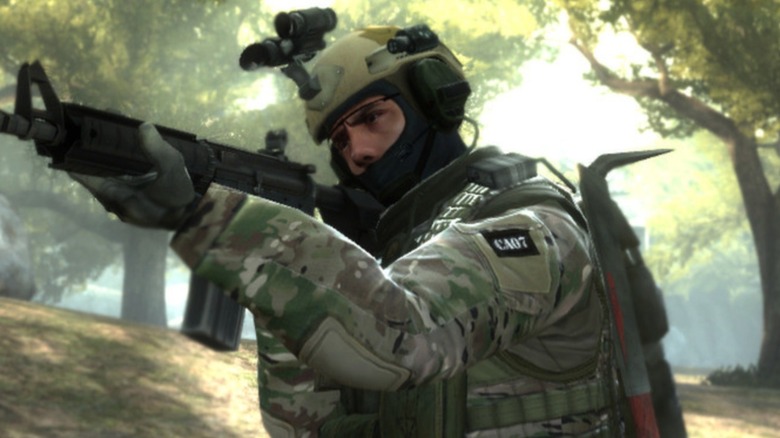The Seriously Shady Reason Valve Is Being Sued
Valve, the company behind Steam, is under fire after being sued for "[abusing] the Steam platform's market power," as reported by The Hollywood Reporter.
According to THR, "five gamers filed a putative class action" lawsuit against Valve because of the group's misuse of market power with the Most Favored Nation clause. This clause is found in the contracts the group makes with game developers prior to selling games.
The Most Favored Nation clause stipulates that "the game developers agree that the price of a PC game on the Steam platform will be the same price the game developers sell their PC games on other platforms." The major argument against Valve requiring this in contracts is that it leaves no room for other PC game platforms to compete or grow in the market. This creates room for Valve to continue almost have a monopoly over game sales in the PC market. With the rise of Epic Games, a relatively new platform PC players can purchase games through, the Most Favored Nation clause is becoming an issue for the free market.
The Most Favored Nation clause involves the World Trade Organization. In essence, the clause requires all countries to make deals with each other in the same way. This includes tariffs and other trade agreements that exist between participating countries. The Most Favored Nation clause is a way for countries to ensure that there's fair trade going on with all countries in the WTO.
However, the clause doesn't function the same way in a market that Valve dominates 75% of. The issue with Most Favored Nation clauses in different markets isn't a new one. The Department of Justice and Federal Trade Commission held a workshop in 2012 debating the legality of the clause and how it should function in markets. There were discussions that dealt with companies abusing the clause to hold market value, but the Most Favored Nation clause is still a legal practice at this point in time.
This isn't the first time Valve has gotten into legal trouble. Already in 2021, the European Commission fined Valve over geo-blocking, meaning that the group was restricting PC games bought in certain countries in Europe from being activated and played on Steam in other countries. It wasn't the only group to be fined — other big-name companies like Bandai Namco and Capcom were also fined for the same practices, but unlike Valve, they cooperated with the European Commision and received 10-15% reductions in their fines. Valve's vice president has stated the company's intention to appeal the fine.

